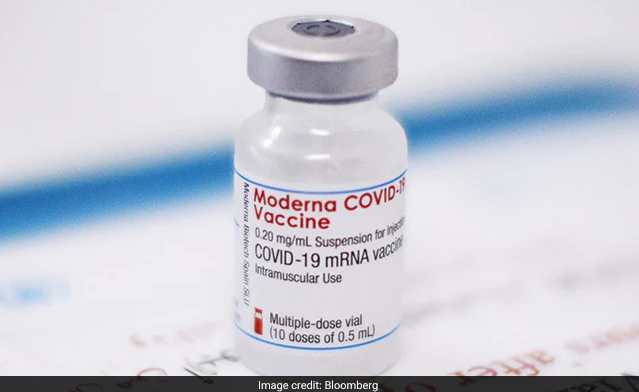Coronavirus Vaccine: Moderna previously said that its vaccine had a 94 percent effectiveness rate in a clinical trial.
Moderna Inc announced on Thursday that its COVID-19 shot was roughly 93 percent effective six months after the second dose, indicating no change from the 94 percent efficacy reported in the initial clinical trial.
Booster doses, however, are still predicted to be required ahead of the winter season since antibody levels are expected to decrease. It, along with competitors Pfizer Inc and BioNTech SE, has advocated for a third shot to maintain a high level of COVID-19 protection.
Moderna CEO Stephane Bancel stated during a second-quarter earnings call that the company will not produce more than the 800 million to 1 billion doses of the vaccine that it had planned for this year.
“We are already at capacity for 2021, and we are not taking any more orders for delivery in 2021,” he stated.
After closing at $419.05 on Wednesday, Moderna shares slid 3.6 percent in pre-market trade to roughly $403.87.
The Moderna data contrasts well with that presented last week by Pfizer and BioNTech, who claimed that the efficacy of their vaccine dropped by about 6% every two months, dropping to roughly 84 percent six months after the second shot.
Moderna and Pfizer-BioNTech both use messenger RNA (mRNA) technology in their vaccines.
“Our COVID-19 vaccination has a six-month efficacy rate of 93 percent, but we must be watchful because the Delta variant is a huge new hazard,” Bancel added.
While dealing with the fast-spreading Delta version of the coronavirus, public health officials around the world are debating whether further dosages are safe, effective, and essential.
Meanwhile, Pfizer plans to apply for a third injection later this month, and several nations, such as Israel, have begun or plan to begin giving booster shots to older or vulnerable people.
Candidate Boosters
Moderna reported that its tests of three different booster candidates elicited strong antibody responses against variations such as the Gamma, Beta, and Delta variants.
According to the study, neutralizing antibody levels after the boost were similar to those seen after the second dose.
Moderna has signed vaccine contracts worth $20 billion so far this year. It aims to manufacture between 2 billion and 3 billion doses next year, with sales agreements worth $12 billion in 2022 and options for another $8 billion.
The business, on the other hand, has been unable to keep up with Pfizer, which aims to produce up to 3 billion doses this year and sales of $33.5 billion in 2021. In December, the United States approved Moderna’s vaccine for emergency use in adults, and it has since been cleared for emergency or conditional use in adults in more than 50 nations.
This month, the business hopes to complete its request to the US Food and Drug Administration for final approval.
It reported $4.4 billion in second-quarter sales, slightly higher than the $4.2 billion forecasted by Refinitiv’s ten analysts. Its COVID-19 shot is the company’s first authorized product, with sales of $67 million just a year ago.
Moderna made $2.78 billion, or $6.46 per share, exceeding expectations of $5.96 per share for the quarter.
(This story was not edited by Press-Wire and is provided from a syndicated feed, except for the headline.)

